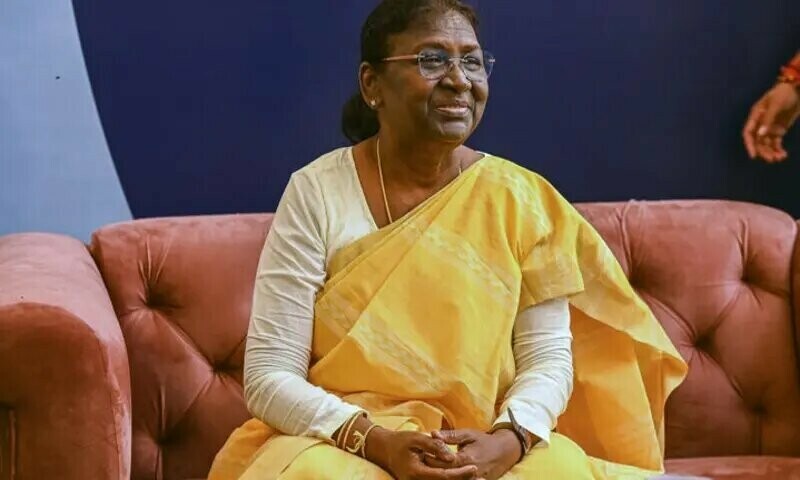India’s new president, Droupadi Murmu, was sworn in on Monday, making her the country’s first head of state from a marginalized tribal community.
Last Monday, lawmakers of India’s parliament and state legislatures voted the former teacher and state governor to the mostly ceremonial role with 64 percent of the vote.
Before her inauguration, Murmu, a member of the Santhal tribe from the eastern Odisha state, visited a memorial in New Delhi honoring India’s freedom hero Mahatma Gandhi.
A tiny tribal community was the starting point for Murmu’s life journey after taking the oath of office in parliament.
According to her, it was “like a dream” for her to acquire an elementary education because of her family’s circumstances.
In spite of several challenges, “my will stayed strong, and I became the first daughter from my community to attend college.””
The ruling Bharatiya Janata Party and its supporters in the parliament and state assembly made it look like Murmu’s victory was a certainty.
It’s expected that Prime Minister Narendra Modi’s re-election campaign in 2024 would benefit from this decision, analysts say.
After Murmu’s speech, Prime Minister Modi tweeted, “Her taking the Presidency is a watershed moment for India, especially for the poor, marginalized and underprivileged.”
In her acceptance speech, Murmu remarked that her victory would provide hope to people who had been left behind by India’s recent economic boom.
The president of India can send back legislative laws for reconsideration and can guide the formation of administrations, although the prime minister of India has executive power.
As the country’s second female president, Murmu after Pratibha Patil, who served from 2007 until 2013.


